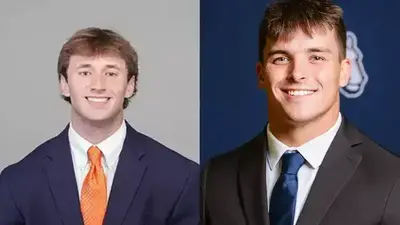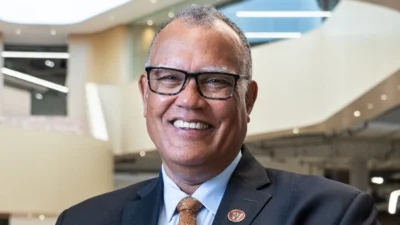Kalamazoo Public Schools | Free CCO Credit
Kalamazoo Public Schools | Free CCO Credit
The best advice for dealing with the FAFSA: Start now. Update often.
Many parents are intimidated by thoughts of tackling the Free Application for Federal Student Aid (FAFSA), but as with most things in life, the earlier you start the better, said Alisha Cederberg, associate dean of student experiences and director of financial aid at Kalamazoo Valley Community College.
The FAFSA is the form that college students must complete to be considered for federal financial aid and most scholarships. The application for the 2023 school year opened on Oct. 2.
KVCCheld a FAFSA informational session at 7 p.m. Oct. 17 as part of its annual College Night.
“We want to kick start people into doing it as soon as they are comfortable,” Cederberg said.
Additionally, KVCC holds FAFSA Nights every Tuesday from 4:30 – 6 p.m. Financial aid officers will walk families through the application — even if their student has no intention of attending KVCC.
“If it serves the needs of our community, we’re happy to help you do the FAFSA,” Cederberg said. “We want people to come in and use our community resources. If they feel more confident, they’ll get it done earlier.”
She said the college used to designate certain Tuesdays for FAFSA workshops and assigned different schools different nights, but the financial aid office decided it would be more useful to simply open their office hours to anyone who needed help.
“It shouldn’t feel like a struggle and we’re happy to make it not feel that way,” she said.
To schedule a group parent visit or for simple questions, like how do you reset the password, families can feel free to contact the KVCC financial aid office at (269) 488-4231 or finaid@kvcc.edu.
Cederberg offers these tips for preparing for a FAFSA consultation:
1. Bring your tax records. Have your hands on your 2021 taxes. A lot of times FAFSA will retrieve the information while you’re completing the form, but in the event the system can’t, it’s good to have the actual documents with you. Plus, they’re full of useful information, such as Social Security numbers. Also, put someone in charge of making sure they have the documents before you leave the house.
2. Make sure you have your W2 form. Often it’s included in the tax packet, but sometimes it’s not. The W2 is different from your tax forms.
3. Do your best. Cederberg said she has 17 years of experience with the FAFSA, including training from the federal government, and even she will sometimes still have questions. Questions are OK. “If you have a question, we can follow up. It doesn’t have to be perfect.”
4. Update often. The form doesn’t have to be completed on the first try. It can be saved and updated. There’s no limit on making corrections. “If we make a mistake, we can go back in and fix it. We can do this all day.”
5. Your student should help. Cederberg said “100 percent students should be there completing the FAFSA with assistance from their parents.” Students should be able to complete the form themselves in their second and third years.
6. Discuss marital status issues before you begin. That is the most commonly made error on the FAFSA. These include questions about divorce, custody and income. It’s not intuitive, Cederberg said.
7. Push send. If the deadline is approaching, it’s better to submit than to wait to have it done perfectly. There are deadlines for school aid and scholarships. If the school has questions, they will contact you.
“A lot of people think completing the FAFSA is the end of the process,” she said. “In a lot of ways it’s the beginning. A lot of schools will have their own financial aid forms.”
And here’s a secret that she said financial offices do not do a good job of sharing: They want to give you the money you qualify for. It’s unlikely that a family would make one mistake on the form and find themselves losing out on an award.
“If there’s a problem on the form, we’re going to want to make sure that gets fixed too. We want to make sure we give money to the right families,” she said. “We’re trying to get the money to the people who we said we were going to give it to, to the people who need it.”
You can schedule an appointment for FAFSA help at Kalamazoo Valley Community College by calling (269) 488-4231 or emailing finaid@kvcc.edu. You do not need to attend KVCC.
Original source can be found here.




 Alerts Sign-up
Alerts Sign-up